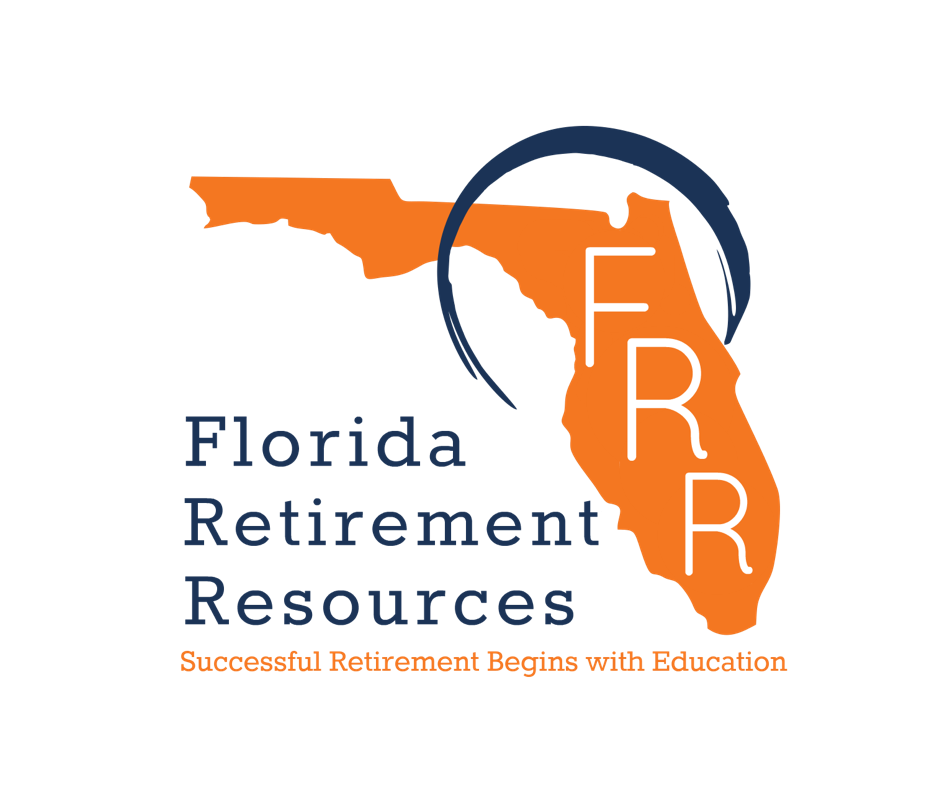SB7024 is making big changes to FRS members retirement benefits starting July 1st of this year. The...
Is Hiring An Advisor For Your FRS Worth It?
We find many FRS members are often hesitant to pick up the phone and call us about their FRS retirement plan questions and concerns because they are worried about getting a bill, or what working with us entails. There are many reasons why hiring an advisor to help you manage your FRS retirement benefits and plans can be beneficial to you, and today we will cover some of those benefits and costs associated with our services.
The Cost
So we don't want to be vague, but cost really does depend on what each client needs. First and foremost, scheduling a meeting with us over the phone, Zoom, or in person at one of our offices is entirely complimentary. In fact, you can schedule as many meetings with us as you like, and we will be happy to answer all of your questions. Our entire business model revolves around sharing our knowledge with anyone who would like our help, and then creating client relationships with those who would like our help with financial asset management later on. So if you want help with our professional financial services, what does that Cost? Well, we offer fee based services for assets we manage directly or through a third party money manager, we offer in-service employer retirement account management also through this fee based service, and we also can recommend financial products where we are paid commissions for those products we can solicit. So, if you have retirement funds you would like us to look at for you, we can assess your goals with you, make recommendations, and then walk you through how you might be charged, or how we are compensated based on your individuals needs and goals.
The Benefits
Some of the benefits are obvious, such as having professional management over retirement funds, or a personalized asset allocation based on your individual goals, timeline, and risk tolerance. If you don't have a background or experience in large financial investments, determining what to do with funds from DROP, the Investment Plan, or another retirement account like a 403b or 457b can be a daunting task. Outside of the obvious though, there are many less seen benefits gained from working with us. Below you will find benefits many people we meet miss out on and things we help our clients find and file/complete as well:
- Knowing how and when to apply for the FRS Health Insurance Subsidy. A benefit that pays all eligible retired FRS members up to $225.00 per month in retirement (1*).
- Taking advantage of the $3,000 special risk tax benefit for health insurance costs in retirement (2*).
- Knowing how to avoid the before age 59.5 10% tax penalty for some retirement accounts for individuals planning early retirement by taking advantage of employer sponsored retirement benefits, rule 72T, and other opportunities.
- Income planning and tax tips to avoid lost income in the future.
Information provided should not be considered as tax advice from GWN Securities, Inc. or it's representatives. Please consult with your tax professional.
- Legacy planning to help make sure your assets are passed along to your beneficiaries when you retire (for example, did you know your spouse can claim your HIS benefit if you pass away? In order to do so, they need only reapply as your surviving spouse to receive the benefit for themselves).
An Example
Let’s look at an example of how working with an advisor may help you save money in retirement.
John, a retiring fire fighter retired on the FRS pension plan with a pre-tax pension income of $6,000 per month, and an additional $400,000 from DROP. John also had a deferred compensation account (457b) with $150,000 when he retired as well. John is age 55, and is trying to make plans for how to use his benefits in retirement. John's current pre tax income from employment is $9,000 per month, and he wants to replace that income in retirement, as well as pay off the $200,000 mortgage he still has on his home which is costing him $2,000 per month. John's plan is to take a partial distribution from his DROP payout to pay off his mortgage in a lump sum, and then combine his remaining DROP funds and his Deferred comp into an IRA.
This is a pretty common plan we see FRS members make themselves. There are a few issues John should consider with this plan though, as well as taxable implications.
1. John has to pay taxes on his distribution from DROP, the standard withholding is 20%, but that does not mean that is the amount of income tax John will pay on this distribution. If his pension income, plus distribution income exceed a 20% income tax threshold, he could be liable for a tax bill the following year. If we assume the 20% withholding is accurate for the sake of this example John needs to withdraw $250,000 from DROP to net $200,000 after taxes to pay off his mortgage. This leaves John with 150k left in DROP, and as well as his 150k in Deferred Comp. John then goes to his bank and sets up an IRA at the bank and deposits the 300k from DROP and Deferred comp into the account which earns 3% interest annually. John now has 300,000 in his IRA producing $9,000 in interest per year. This means his income is now up to $6,750 per month before taxes, but his monthly income now can be reduced to $7,000 per month because he paid of his mortgage. This means John is only $250.00 per month short of his retirement income objective. There's a problem with this plan though, because if John is only 55, and is taking withdrawals from an IRA, he could be subject to an early withdrawal penalty of 10% for taking distributions from an IRA before reaching normal retirement age of 59.5.
The above example looks to be close to fitting John's Goal, minus a possible tax headache, an early withdrawal penalty, and a slightly under target retirement income. Well, let's take a look at this example if John were to hire a financial advisor who has experience working with FRS members.
2. John has the same goal in this example. $9,000 monthly income from employment, a 200k mortgage costing him $2,000 per month for the next 10 years, $400k from DROP, and $150,000 from Deferred Comp. John meets with Florida Retirement Resources who recommend John to not pay off his DROP in a lump sum, but instead invest the funds in a some income-growth mutual funds after determining that this fits John's moderate risk tolerance. His target average annual rate of return is 7%, and with a 1% fee from his advisor, John nets an annual average of 6% per year on his entire $550,000 from DROP and deferred comp. Additionally, John learns that if he utilizes the FRS investment plan for his DROP funds and deferred comp funds, he is keeping his funds in an employer sponsored retirement account, allowing him to avoid the 10% early withdrawal penalty being that he is already age 55. Sometimes that can be as young as 50! Additionally, John is earning an average net interest only income from his investments of $33,000 per year, or $2,750 per month. Additionally, that means John can keep the mortgage, and have the same net income as paying off the mortgage with a monthly gross income of $8750 per month. Additionally, his advisor makes him aware of the FRS Health Insurance Subsidy, a benefit that can bring in up to an additional $225.00 per month from the FRS for the rest of his life at no cost to him. This works out to be huge savings in retirement, because in 10 years, when the mortgage is paid off, John will still have that $8,750 per month in income, rather than $6,750 like in the first example, he will also have his HIS benefit of up to $225 per month, and his account balances would still be at $550,000 rather than $300,000. If John is 65 when the mortgage is paid off, and lives to age 85, that's a $480,000 cumulative increase in income over his lifetime.
The examples in this section are hypothetical and for illustrative purposes only. It assumes a 7% annual return on investment, which is not representative of any real-life scenario and cannot be guaranteed. Moreover, the examples do not take into account fees and taxes, which would have lowered the final result.
Determining if hiring a financial advisor to help you plan your retirement may or may not be a benefit to you, but you may not know if that is the case without speaking to one. We find many new clients don't know what questions to ask, or aren't really sure how to move forward with planning retirement. You can schedule a complimentary meeting with one of our advisors who will help answer your FRS retirement questions by clicking below and choosing a time convenient for you for us to help.
Sources:
(1) https://www.myfrs.com/FRSPro_ComparePlan_Health.htm
(2) https://frs.fl.gov/forms/PSO-Notice.pdf





